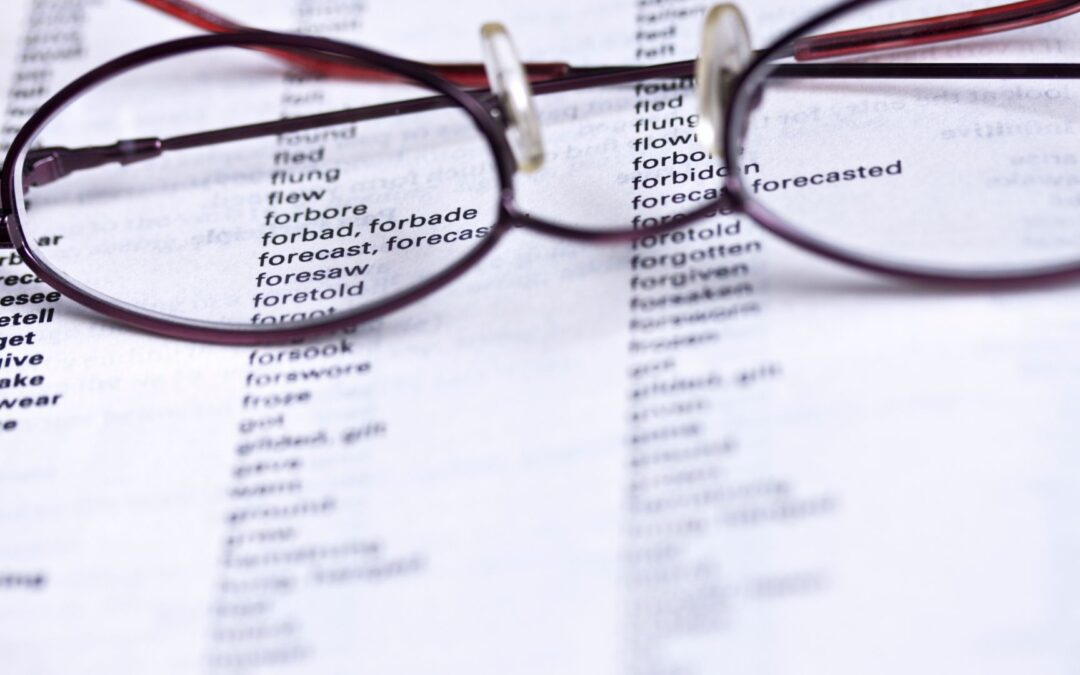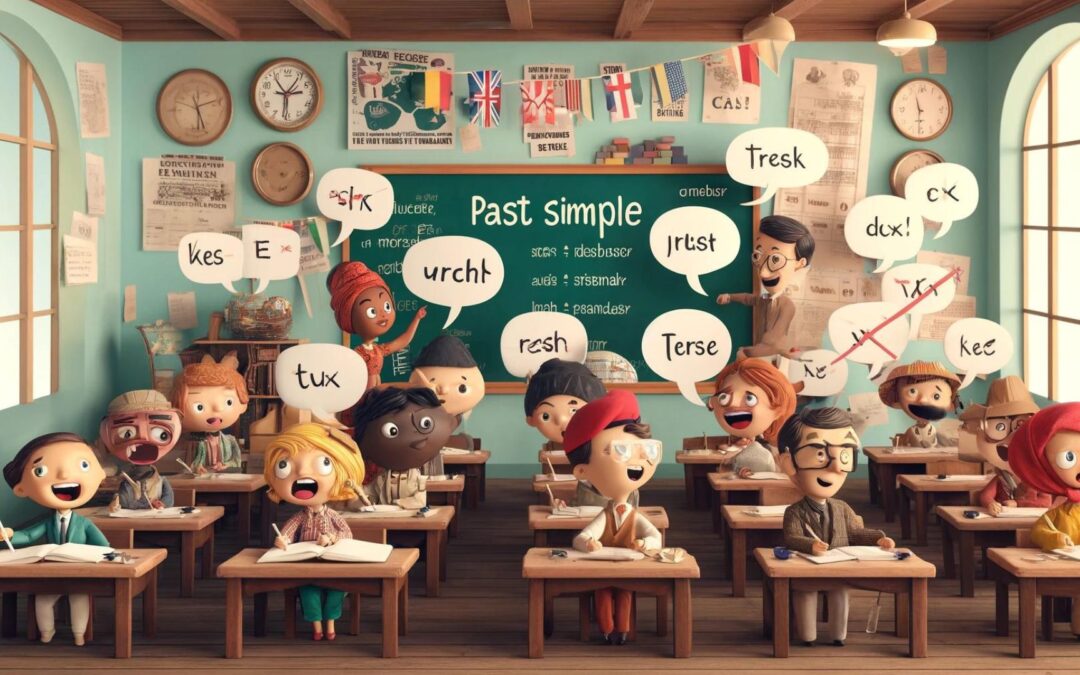Practice Worksheet
PDF Download Link
Grammar | the Present Perfect by English Plus Podcast on Scribd
Transcript
Disclaimer
I am using an automatic transcript service as it is not possible for me to do it on my own and I cannot afford human transcription at the moment. The service claims to have about 95% accuracy, which means there will still be some mistakes, so my apologies for having a less than perfect transcript, but I hope I can afford human transcription soon and I will solve this problem. However, the service is pretty good, and the transcript is almost perfect.
Transcript
Welcome to a new episode from English plus podcast. Today, we’re going to talk about the present. Perfect. And of course, today is about grammar. We will talk about different uses of the present. Perfect. Why we use the present. Perfect. And not other tenses. We will compare between the present. Perfect. And the past simple, because most probably tense you’re going to confuse with the present.
[00:00:29] Perfect. Is past simple. So we will talk about that as well. So now without further ado, let’s start talking about the present. Perfect. Now first, if we want to create a sentence using the present. Perfect. What do we need? Of course we will need verb have, or has as an auxiliary verb. But then what about the main verb?
[00:00:49] The verb that has the meaning, the verb that has the meaning is always in the past. Participle. The best part is supple for regular verbs is easy because we just add ITI to it. For example, if it’s play, we say played just like we do in the past simple, but the problem is with the irregular verbs, the irregular verbs, we don’t have rules.
[00:01:10] You will have to refer to an irregular verb list and figure out the past participle of the verb you need. But with that being said, we’re not going to focus a lot on the form of the present. Perfect. Because. That’s the easy part. We’re going to focus on. The more important thing in that is the use of the present.
[00:01:29] Perfect. Well, let’s take a look at this example and see why we use the present. Perfect with it. Have you ever seen snow? I’m asking someone and I’m just saying, have you ever seen snow and this person answers and says, no, I haven’t. I’ve never seen snow, but Ana has seen snow. Maybe this person is talking about a friend of hers or his and her name is Ana.
[00:01:54] Ana has seen snow, but I haven’t seen snow. And the question originally was, have you ever seen snow? So here we are using the present. Perfect. But why don’t we simply say, did you see snow? Why have you seen, well, the present perfect. Can talk about events that have, or haven’t happened before now. The exact time of the event is unspecified because it is unimportant because we can’t do that.
[00:02:23] But sometimes we just don’t know the exact time in the past. We’re talking about something and we’re wondering whether it happened or not in the past, but we don’t know exactly when it happened. So there comes the present. Perfect. And we use it to talk about those events that have, or haven’t happened before now.
[00:02:41] And the exact time of the event is unspecified. Now we usually use adverbs, like ever, never yet, still, already, and lately with the present. Perfect. Specially, when it comes in this meaning now, for example, we can say, have you finished your homework yet? Of course we don’t have to use yet. We can simply say, have you finished your homework?
[00:03:02] And the meaning of yet is implied, but I’m just trying to show you how we can use those adverbs with a present. Perfect. The person can answer you and say, I still haven’t finished mine. Jack has already finished his, so something like that here already, still yet. We usually use those with the present.
[00:03:21] Perfect. Because these adverbs do not talk about a specific time. And now you might ask yourselves, why do we say its present? Perfect. Why do we say it’s past? Because. The activities we’re talking about are in the past. Yes. But the thing is the present perfect has to do with the present, even if you translated into your own native languages and it translates as past verbs, it definitely has a relation to the present.
[00:03:46] And here, when I say, have you ever seen snow? And you say, no, I haven’t seen snow or yes, I have seen snow. Yeah. When I say yes, I have seen snow. I am talking about sometime in the past, when I first saw snow. And I’m using that to tell you, I have seen it, but what is the meaning here? The meaning is I’m telling you, I know what snow is.
[00:04:06] I have this experience and I’m talking about all my life until now. Whether I have done something or I haven’t done something. So here, you can see that there is a relation to the present. When I say I have never been to the United States, let’s say that means I have never visited the United States. I’ve never visited the United States all my life or the opposite.
[00:04:31] You can say, I have been to Italy. Yes. I visited Italy. But then why don’t we just use the past simple instead? Yeah, because here the focus is different here. First of all, you’re talking about all your life until now. The second thing is you’re talking about a life experience. You have, you’re talking about whether you have this experience or you don’t.
[00:04:53] So when you say I haven’t been to the United States, you’re talking about this life experience, and you’re saying that you don’t have it. You don’t have it. Or when you say I have been to Italy, you’re talking about this life experience and you say that I do have it. I have it. I know Italy. So here there is a link to the present, but yeah, maybe the meaning of the verb itself is in the past.
[00:05:17] So what, but remember the key thing is unspecified time in the past. Don’t specify the time. If you specify the time that will be passed simple, but we will talk about that in a little bit. Now let’s take a look at other examples. Sarah has recently finished her work. Sarah has just finished her work.
[00:05:36] Sarah has finished her work. Now here, Sarah has recently finished, has just finished. Has finished her work. What is the special use of the present? Perfect. Here. Now we use the present perfect with just, or recently. And when we do that, we emphasize that an action was recently completed. So here we’re talking about the event doing work that happened at a recent time in the past.
[00:06:02] So he, she has recently finished her work that happened in the past, but recently. Not a long time ago, but remember, you don’t have to use them by saying that we can use recently. And just to talk about things that has just happened in the recent past, it doesn’t mean that you have to use them all the time sometimes just, or recently is implied by the use of the present perfect itself.
[00:06:24] Not for example, when we said Sarah has finished her work, that may imply the meaning of recently or just, but if you want to make sure the person who, who you’re talking to understands, you’re just talking about the recent past you can use recently, or just now that’s just another case. Let’s take a look at another situation where we usually use the present.
[00:06:44] Perfect. The present. Perfect. Can also express an event that has occurred repeatedly from a point in the past to the present time. And the event may happen again. That’s the idea, that’s the link to the present. That’s why we use the present. Perfect. Not just because we’re talking about something that happened in may never happen again.
[00:07:03] If we know for a fact that it will never happen again, so we don’t use the present. Perfect. We use the best simple instead, but here, for example, let me give you an example. So you can understand what we’re talking about. We’ve had three tests so far this term, so I’m talking about how many tests we’ve had so far.
[00:07:21] But it is implied, or it is understood that we might have more before this term ends. So here we’ve had three tests so far, this term, that means we may have more, I’m talking about a repeated action that has happened this term, but there might be more of that. Or when I say I’ve met many people since I came here and that’s possibly going to continue, I’m going to meet more new people.
[00:07:47] As time goes by. So here I’ve met many people, but that’s not the end. That’s not all the people I’m going to meet for the rest of my life. No, I’ve met some new people and I’m going to meet more. So here we can talk about a repeated event that has occurred repeatedly from a point in the past, up to the present time.
[00:08:06] And as we said, the key thing, why is it present? Because this event may happen again. I’m just talking about, I’ve read five books this year, but this year is not over. I may read more. I’ve listened to three episodes this week. So, but the week is not over yet. I may listen to more and you get the point. So repeated actions that may happen again and again, but I’m just talking about how many I have done so far.
[00:08:32] In this term in this year, this week, this morning, it doesn’t matter. So that is also the present. Perfect here. And now I will talk about the present perfect and simple past side-by-side. And we will compare the differences between these two, as we said, because sometimes it can be confusing, whether we should use the past simple or the present.
[00:08:52] Perfect. But before we do that, let me remind you that you can find a link in the description of the episode that will take you to our website English plus podcast.com. There you will find exercises. You will find the transcript of this episode. And of course the PDF practice worksheet, which you can download for free practice and then check your answers with the answer key we provide with it.
[00:09:13] And of course, if you like the content we’re creating and you would like to support us and become our patrons, you can do that. By taking the second link you will find in the description of this episode and go to our Patreon page. You can support English plus podcasts there become our patrons and help us create more of the content you love and reach more people to help us spread the benefit as far and wide as we can.
[00:09:35] Now, with that being said, let’s get back to what we’re talking about today and that’s the present. Perfect. And let’s talk about the present. Perfect. Versus the present. Simple. Now we use the present perfect. To talk about past events. When there is no specific mention of time here. Let me give you an example.
[00:09:53] I’ve met Linda, but I haven’t met her husband. Have you met him? Hey, see here I’ve met Linda. I haven’t met her husband. Have you met him? Now here, the speaker is talking about some unspecified time before now, obviously this happened in the past, but there’s no specific time. And here we usually use the present.
[00:10:14] Perfect. Now I’ll be honest with you. It’s not a mistake here to use the past simple, but we’re just saying what we usually use. We usually use present perfect when the time is not specific, but when we specify the time and we talking about details and specific things, we use the past simple. Now take a look at this example, I met Helen yesterday at a party.
[00:10:35] Her husband was there too, but I didn’t meet him. Did you meet him at the party? You see the whole thing. First of all happened yesterday. The time is specific. We’re talking about a specific time in the past, and then we’re talking about other details that happened yesterday at that specific time. So her husband was there too.
[00:10:57] I didn’t meet him. Did you meet him? All of that? Happened yesterday. So the time is specific. The simple past is used when there is a specific mention of time. Like in this example here, let’s take a look at another type of difference between the present. Perfect. And the present simple. Now, what if we say Sam has been a math teacher for 10 years, he loves teaching.
[00:11:21] Now here, because we use the present. Perfect. We are definitely implying that Sam is still a teacher because otherwise, why are you using the present? Perfect at all. If you’re talking about something that started in the past and it’s still true in the present, so definitely you can use the present.
[00:11:38] Perfect. And you don’t have to tell me that he is still a teacher. I understand. Simply because you use the present. Perfect. Sam has been a math teacher for 10 years. You don’t have to tell me that Sam is still a math teacher, because that’s the meaning, right? You are telling me that he started 10 years ago and he’s still a teacher.
[00:11:57] He has been a math teacher for 10 years. So the present perfect is used for situations that began in the past and continue to the present. But what if I say that Jim was a teacher for 10 years, from 2000 to 2010. Now he’s an engineer or now he’s unemployed or now, whatever. But the point is that he was a teacher for 10 years.
[00:12:20] He was not, he has been because he is not anymore. So here by just using the past simple and here, of course you might say. Yeah, but it’s obvious because you used from 2000 to 2010. That’s right. What if we don’t use that? What if we just say Jim was a teacher for 10 years and period, we stop. What should you understand from this?
[00:12:39] Is Jim still a teacher or not? Definitely not. And that’s why you use the past simple. So remember, maybe I’ve said that a couple of times in our episodes, especially when we’re talking about grammar, don’t think about grammar as mechanics or as, you know, just like I look at the sentence and then I decide which tends to use, or later on when we talk about modals conditionals, et cetera, don’t think about it this way.
[00:13:06] Think about grammar the other way round. Think about what you want to say and then find the perfect tool for what you want to say. That is the best way to think about grammar. You think about it as a toolbox and each tool serves a purpose, but the most important thing is that you have a purpose. You have a meaning in your mind.
[00:13:26] Now that is to think about those two examples here. Now I want to talk about something. I want to tell you that this person started teaching a long time ago and he still loves teaching. So he’s still a teacher, so, okay. I want to talk about something that started in the past. It’s still true in the person.
[00:13:43] What is the tool I have? It’s the present. Perfect. And I can say he has been a teacher for a very long time, but he is still in love with his profession or with teaching. So here, you don’t need to think about it the other way around, which might harm your English in the long run. You don’t need to think about it.
[00:14:00] Like he has been a teacher or should I say he was a teacher for a long time with four? Should I use the past simple or the present? Perfect with four or cents or something like that? Well, while these things are useful, when we talk about, uh, we usually use Justin recently, et cetera, with the present.
[00:14:17] Perfect. But that’s not the right way to think about it. When you want to say something, think about what you want to say first, and then find the tool that you can use from this big toolbox that is called grammar and use it. So here, our last example, as we said, Jim was a teacher for 10 years. If you just say that.
[00:14:36] People will definitely understand that Jim is not a teacher anymore. Um, maybe because Jim retired for example, or maybe because he changed jobs or maybe because we’re talking about very old gym who died, who’s not with us anymore. So here, the idea is you don’t need to say that he is not anymore. Okay. I got it.
[00:14:57] You just used, Jim was a teacher for 10 years. Definitely. You mean that he’s not anymore. So here knowing your tents as well and knowing your tools very well, and you can use them in an efficient way. You can say less and mean more. And that’s another great thing you’ll get by really understanding grammar in English.
[00:15:16] And that’s what we’re trying to help you with in English plus podcast in our grammar episodes, like the one you’re listening to today. Now that being said, I hope you’ve learned a thing or two about the present. Perfect. I hope this episode increases your understanding of the tools you have that you can use to express yourself better in English.
[00:15:34] And of course, I have to remind you that you can get a lot more by going to our website and practicing what you’re learning here in the podcast. By just taking the exercises, the PDF practice worksheets with some episodes, we have interactive videos with some episodes. We have interactive activities depending on the topic that we’re talking about, but we always have something to improve your understanding by doing some exercises on English plus podcast.com.
[00:16:00] So don’t miss the opportunity, go there and use all the things that we’ve created with that being said, this is your host, Danny. I would like to thank you very much for listening to another episode from English plus podcasts. And I will see you next time.










1 Comment